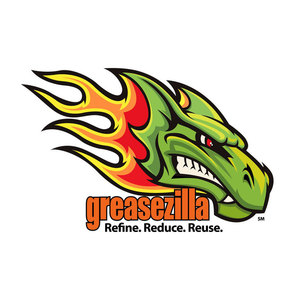Greasezilla announces $8 million investment

May 21, 2021
BY Downey Ridge Environmental Company
Downey Ridge Environmental Co., developer of Greasezilla FOG separation and processing systems, announces that Sheltowee CleanTech Fund I LLC, is investing over $8 million to expand Greasezilla technology nationwide. Greasezilla will invest the capital to build ten new Greasezilla FOG receiving stations with private and public joint venture partners across the country.
Eric Dobson, CEO of Sheltowee CleanTech Fund I LLC, said, “This is the second investment we have made in Greasezilla. The company initially caught our attention for its unique ability to convert FOG waste into energy with an exceptional return on investment. Greasezilla has created a viable and lucrative model to advance waste reduction, water recovery and biofuel production initiatives for concrete advancements in a more sustainable world.”
Advertisement
Greasezilla is the leading solution provider for managing and converting the overabundance of FOG created by food establishments and industrial food production facilities worldwide. Initially developed for independent grease haulers, Greasezilla’s ability to turn the problem of FOG waste into a sustainable energy source addresses larger infrastructure, environmental and energy issues. As a result, Greasezilla is finding significant market opportunities in wastewater treatment facilities, food processing plants, independent pumpers, biofuels and biodiesel production.
“Our systems effectively turn a negative value waste stream into resources while also generating incomparable profitability for operators, both from FOG processing fees and biofuel sales. No other technology in the industry can match it,” said Brian Levine, executive vice president, Downey Ridge Environmental Co., “Greasezilla will use the funding to place FOG separation systems across the country in joint ventures with select operators, fueling its growth as one of the fastest growing clean tech companies.”
Greasezilla is changing the paradigm for FOG disposal by replacing traditional landfilling and incineration practices with a model for resource recovery. By separating FOG into its basic components, Greasezilla generates a consolidated brown grease advanced biofuel (ABF) that can be sold as a commodity. The ABF, with a moisture content of less than one percent, also provides an ideal, low-cost, conversion-ready feedstock for biodiesel producers.
Advertisement
Greasezilla is currently installing new systems in Austin, Los Angeles, Virginia Beach, New York, Florida, Cincinnati and overseas, with 10 sites committed for installation over the next 12 months alone. To learn more about Greasezilla’s FOG separation system and international biofuel distribution network, visit www.greasezilla.com.
Related Stories
Bangkok Airways Public Company Limited has officially announced the adoption of sustainable aviation fuel (SAF) on its commercial flights, reinforcing Thailand’s green aviation industry. The initiative took effect starting July 1, 2025.
Avalon Energy Group LLC and Sulzer Chemtech have signed a strategic alliance and partnership agreement to scale up the production of SAF. Under the agreement, Avalon has selected BioFlux technology for its portfolio of SAF projects.
Neste and DHL Express have strengthened their collaboration with the supply of 7,400 tons (9.5 million liters) of neat, i.e. unblended, Neste MY Sustainable Aviation Fuel to DHL Express at Singapore Changi Airport starting July 2025.
CoBank’s latest quarterly research report, released July 10, highlights current uncertainty around the implementation of three biofuel policies, RFS RVOs, small refinery exemptions (SREs) and the 45Z clean fuels production tax credit.
The USDA significantly increased its estimate for 2025-’26 soybean oil use in biofuel production in its latest World Agricultural Supply and Demand Estimates report, released July 11. The outlook for soybean production was revised down.
Upcoming Events










